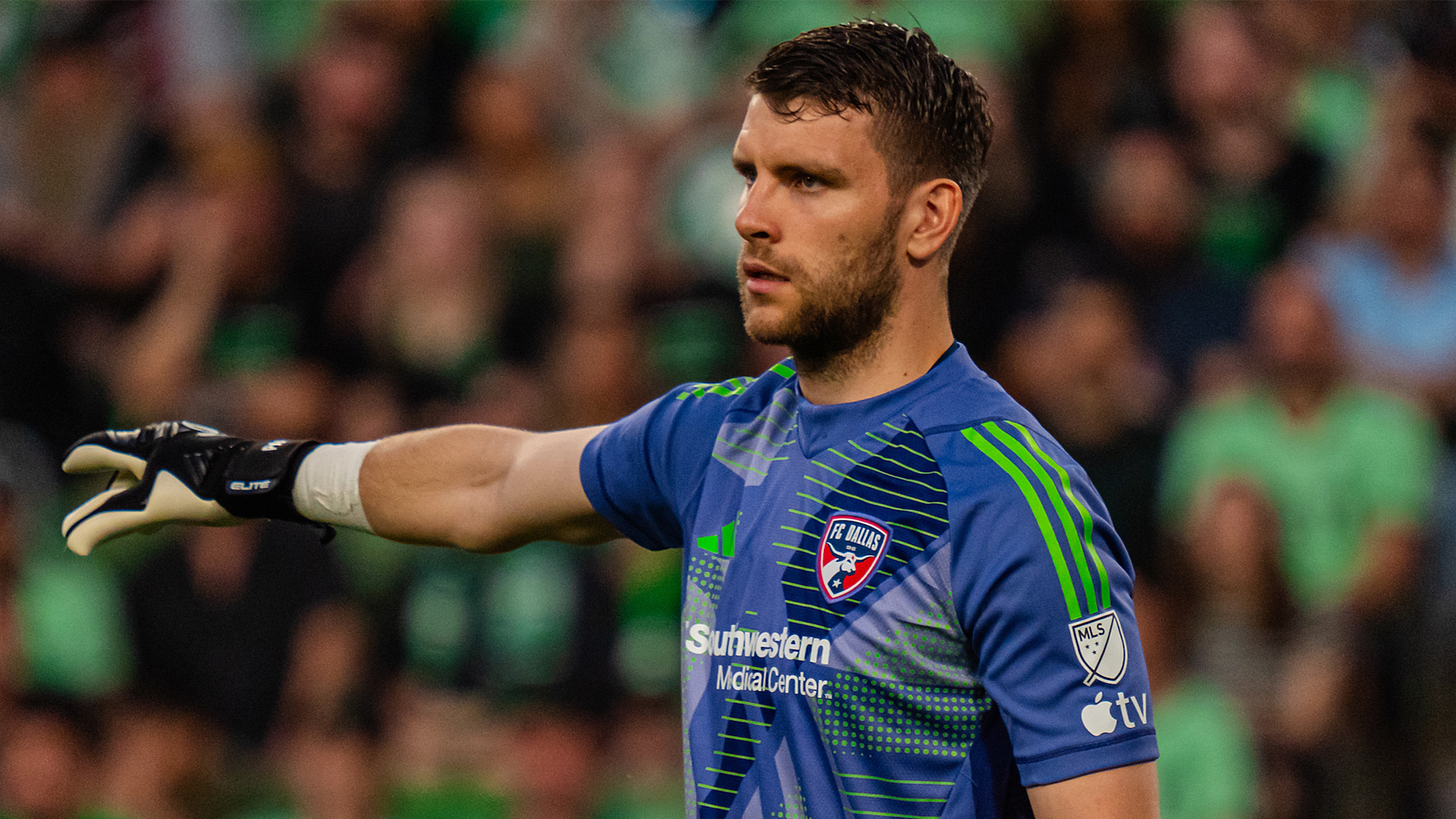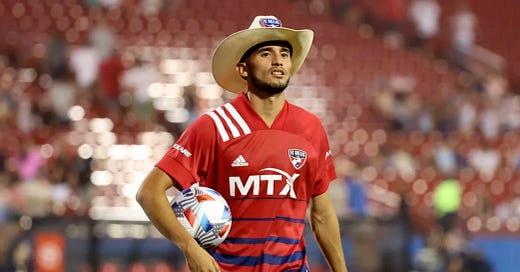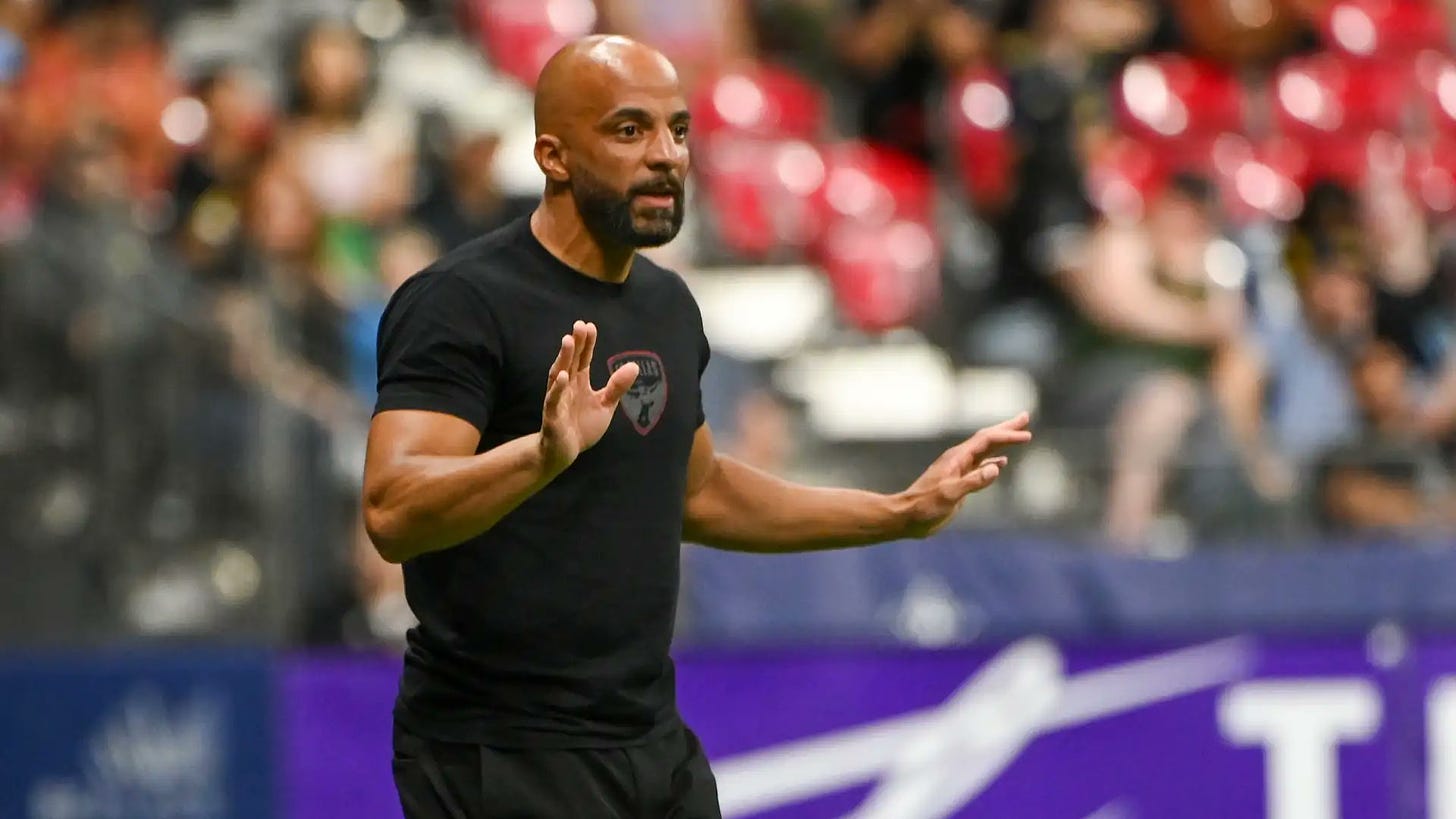Three critical questions FC Dallas must answer going forward
Identity, coaching and roster directions are on the table for the club; the answers will shape the organization’s future
The headline says “critical questions” that FC Dallas must answer. But perhaps we should sledge hammer this point home with a little more clarity and precision: it should probably say “critical-huge-giant-super important” questions that FC Dallas must answer going forward, at a very high level.
The 2024 season didn’t go well, as everyone knows. (One inconsequential match remains.) Everyone in Frisco is invested in getting things turned in a better direction for ‘25, leaning into the only good news in all this: in Major League Soccer, it can happen fairly quickly.
Before anyone can dive into the details, the organization’s prime movers will need to answer these three questions, establishing the critical macro elements that will chart a clearer path for the micros:
What is the club’s identity?
Who is the coach?
Is the roster a “restock” or a “complete rebuild?”
Let’s look at each one:
What is the club identity?
The FC Dallas culture and model, which not so long ago was quite easily defined, has gone adrift, no longer recognizable. Not just from a match day tactical standpoint (although that has mostly wandered off into the woods, too) but more importantly from a larger, organizational view.
Under Oscar Pareja, then Luchi Gonzalez and perhaps initially under Nico Estevez, FC Dallas knew what it was. Everyone else did, too. The club built its roster around homegrown signings and young imports. The “young imports” part was hit or miss, but FCD excelled at developing talent through its academy system and making good use of the homegrown signings in pursuit of wins and titles.
Maybe you didn’t like it. Maybe you wanted the club to spend more, to keep up with the Seattles and LAFCs and Inter Miamis. And fair enough. But the club knew itself and understood its identity — and that’s the most important thing. Just be good at what you are, whatever that is.
FCD was very good at it. In fact, Dallas was the very model of how to build a team around homegrowns, the envy of dozens of MLS clubs. They could rightly trumpet Ricardo Pepi, Jesus Ferreira, Paxton Pomykal, Reggie Cannon, Tanner Tessman, Bryan Reynolds, Kellyn Acosta and … well, the list goes on … as youngsters who came up through the academy and proved themselves dependable MLS game day assets. And that’s not to mention several others who may not have directly helped win MLS matches – Weston McKennie and Chris Richards, most notably – but further burnished the academy’s reputation to useful effect.
But something happened in the Estevez years. Hard to say whether that was due to the Spanish manager’s reluctance to lean on young players or perhaps due to selling the talent earlier along their individual timelines or maybe just due to the cyclical nature of these things; sometimes wells run dry for a spell.
At any rate, FCD for years was one of the younger teams, usually somewhere in the top 5 among all MLS clubs (as determined by ages and minutes played). Five seasons ago, in 2019, FCD was the youngest club in MLS, its players averaging 24.9 years old. That was something to be proud of. That’s identity.
This year the club is 10th at an average age of 27.7 years old – so, almost three full years older. Ferreira was the only FCD homegrown to make a significant contribution to the 2024 season.
In terms of minutes played in 2024, no one among FCD’s top ten is a homegrown academy product. Only two from the top 20 are homegrowns. One is Ferreira, who is certainly an important roster piece going forward. The other is Dante Sealy, whose future at Toyota Stadium seems in serious doubt.
So there it is. Teams around MLS take various paths in their roster builds, and it can work in different ways. What’s most important: establishing an identity that gives your roster building initiatives some structure.
From there, establishing tactical identity is critical, too. But that’s getting too far in the weeds for now. Because establishing that larger, organizational identity is paramount.
Who is the coach?
About 6 weeks ago, this was a no-brainer. Peter Luccin inherited a project that had gone badly south. Injuries had mounted, badly exacerbating and exposing roster issues. Manager Nico Estevez couldn’t adjust, couldn’t fix the problems. (I wrote about that in depth here).
Peter Luccin was nothing short of inspirational in his initial recovery efforts. And the numbers still look pretty good: points per game and goal scoring increased dramatically. He got more from most of the important roster pieces. (Not all of them, but enough of them.) He enlivened the attack, which made home games more interesting, at least.
The most important, overarching mission in my mind as Luccin took charge mid-June was to keep the team relevant in the playoff chase over the second half of the season, which would provide hope for supporters and a morale boost to the entire organization – all feeding into the offseason efforts to get the compass pointed north. Luccin, long a good and trusted organizational foot soldier on the coaching staff, stepped assertively into the fire zone and did just that. Most impressively, he did so while navigating even more injuries during an absolutely brutal, ridiculously busy stretch of the schedule.
Yes, it was looking like a no-brainer.
Luccin still may be the man for the job going into 2025. He certainly did enough to prove himself a steadying hand, an effective leader, and a guy who could patch enough holes to get a few results. The issue is that things are trending in the wrong direction right here at the end.
A win at DC United on Aug. 24 was FCD’s first road win of 2024 (rescuing the team from the potential ignominy of joining a tiny list of MLS clubs to go an entire season winless away from home.) Things were going pretty darn well, and Luccin seemed well positioned to remove “interim” from his job title.
Since then? Not so great.
FCD has won just one of its last six matches. Home losses to Colorado and Orlando went a long way to seeing the team eliminated from postseason contention. As I’ve said on several radio broadcasts this year: “Road losses are certainly a bummer. But home losses can get coaches fired.”
That “one win in six matches” part mentioned earlier? That’s exactly where Estevez was when dismissed.
Luccin got results at a painfully difficult time, and that goes a long way. He is well liked through the organization, from players up through the front office. He takes accountability and is unafraid to call out poor performance from himself or from the team, an admirable trait. He’s an easy guy to like and to cheer for.
So he could still get the job, leading the team into 2025. It’s just that the choice looks a little tougher now for club president Dan Hunt and the team’s technical staff, headed by Chief Soccer Officer Andre Zanotta. Naming a head coach is always a critical call. Seeing as FCD has now tabbed two managers who didn’t make it through their third season, it seems like nailing this one is even more important than usual.
Is the roster a “restock” or a “complete rebuild?”
This one is going to take a little more sussing out – so I’m going to attack it separately in another TexasXI post. Promise, I won’t take long to get that one up and ready for reading.

Without going too far into the nitty gritty, here’s the gist:
FC Dallas has some good roster pieces to build around, including Maarten Paes, Alan Velasco and Petar Musa. You could add Jesus Ferreira to the list if you have faith that he can get back to previous form – something he never really found in 2024. You could certainly add Paxton Pomykal to the list if you have faith that he can finally get past his unfortunate injury struggles. And you possibly could add some veterans to the list, although some come with one of those pesky asterisks, or qualifiers, etc. That list includes Marco Farfan, Paul Arriola, Sebastian Lletget and Nkosi Tafari.
But see, that’s the point. There are too many “ifs” and “buts.” So … tear it down and rebuild or just re-shuffle and restock?
FCD holds contract options on somewhere between 16 and 18 players, so the opportunity is there to go either way.
Let’s circle back on that one. Soon.





